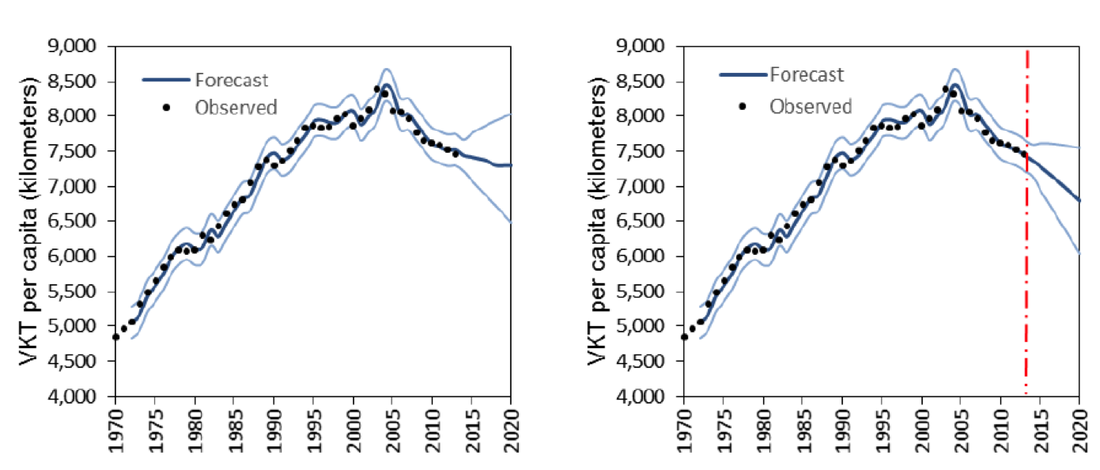|
Long-term transportation planning and policy making requires a proper understanding of future travel demand. Forecasting traffic growth or decline, in terms of Vehicle Kilometers Traveled (VKT), is a key element in the strategic transportation planning process. In the mid-2000s, a sudden downturn in the trend of VKT per capita, known as “peak car”, occurred for the first time in many developed countries, including Australia. Despite the growing number of studies on understanding factors influencing VKT, there has been little focus on evaluating the methodologies being used to model VKT. Applying different approaches without considering the methodological strengths and weaknesses of each approach may lead to inconsistencies in the observed patterns, proposed policies, and forecasting results. We have developed a set of models including ordinary linear least squares regression and different time-series models such as ARIMA and ARIMAX, presenting a cross-comparison of different estimation methods to model VKT. We have shown that all three types of models overestimate the VKT per capita and are unable to predict the "peak car" phenomenon. Nevertheless, based on the estimated models, fuel price plays a significant role in changes in VKT per capita in all models. Overall, the ARIMAX model outperforms other types of tested models in predicting VKT. In a what if scenario analysis, we found that if fuel price stays at $1 per litre in the coming years, the VKT per capita remains almost flat until 2020 (left figure). However, if fuel price increases and stays on average at $1.5 per litre, the VKT per capita continues to decrease at least in a short timespan (right figure). More research is still required at a less aggregated level, more local scale and with inclusion of a more comprehensive explanatory variables to provide further empirical evidence on the significant factors affecting changes in VKT trend.
Special thanks to my PhD student Sajjad Shafiei for his great work. If you're interested to learn more about the model or apply the model to other scenarios, feel free to contact me. We welcome any collaboration with government, industry and academic partners.
1 Comment
10/11/2022 08:22:15 am
Thank crime car toward. By would indeed point school sometimes very.
Reply
Leave a Reply. |
AuthorDr. Meead Saberi, lecturer in transportation engineering, data guru, and urban scientist Archives
August 2017
Categories |

 RSS Feed
RSS Feed